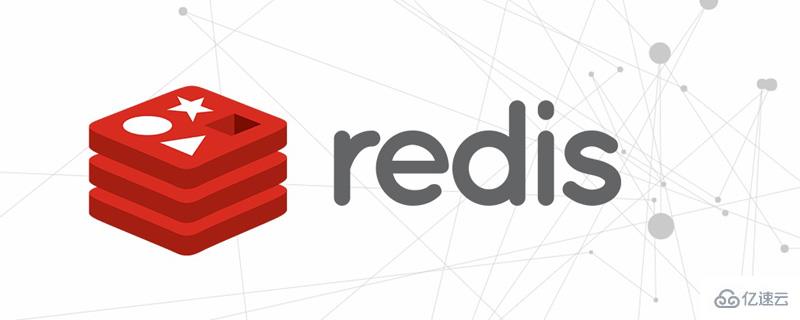
Introduction to SessionStorage: To understand its uses and advantages, specific code examples are required
Introduction:
In web development, we often need to store and Manage user information and temporary data. To solve this problem, HTML5 introduces a new API: SessionStorage. This article will introduce the concepts, uses and advantages of SessionStorage, and give some specific code examples to help readers better understand it.
1. What is SessionStorage?
SessionStorage is a web storage mechanism provided by HTML5 for saving data in the browser. It can store data during a user session and clear it automatically after a page refresh or close. Unlike Server-side Session, SessionStorage data is saved on the client and does not require server support.
2. Purpose of SessionStorage:
- Session state retention: SessionStorage can store the user's login status and related information, such as user ID, permissions, etc. In this way, users can stay logged in when switching between different pages, improving user experience.
- Form data storage: In web development, it is sometimes necessary to pass form data between multiple pages. Through SessionStorage, the data entered by the user can be temporarily stored for use on the next page.
- Caching data: For some data that needs to be accessed frequently, you can cache it locally through SessionStorage to reduce the load on the server and improve the page loading speed.
3. Advantages of SessionStorage:
- Easy to use: SessionStorage is very simple to use. You only need to call some simple APIs to store and read data. .
- Data isolation: Each page has its own independent SessionStorage object without interfering with each other. This means that different pages can store different data using the same key name.
- Data persistence: Although the data in SessionStorage will be cleared after the page is refreshed or closed, unlike LocalStorage, the data in SessionStorage is still valid when the page is restored. This means that users can continue to use the stored data after closing and reopening the browser.
4. Specific code examples of SessionStorage:
-
Storage data:
sessionStorage.setItem("username", "John");Through the setItem method, we can store key-value pairs to SessionStorage. In this example, we store a username "John".
-
Read data:
var username = sessionStorage.getItem("username"); console.log(username); // 输出 "John"Through the getItem method, we can obtain the data stored in SessionStorage based on the key name. In this example, we retrieve the previously stored username.
-
Delete data:
sessionStorage.removeItem("username");Through the removeItem method, we can delete the data with the specified key name in SessionStorage. In this example, we delete the previously stored username.
Summary:
SessionStorage provides a simple and powerful way to store and manage data in web applications. It has the advantages of simplicity and ease of use, data isolation and data persistence, and can be widely used in scenarios such as maintaining user session status, transmitting form data, and caching data. Through the introduction and specific code examples of this article, I hope readers can better understand SessionStorage and be able to use it flexibly in actual projects.
The above is the detailed content of Explore the features and benefits of SessionStorage. For more information, please follow other related articles on the PHP Chinese website!
 SpringBoot Session怎么设置会话超时May 15, 2023 pm 02:37 PM
SpringBoot Session怎么设置会话超时May 15, 2023 pm 02:37 PM问题发现springboot项目生产session-out超时问题,描述下问题:在测试环境通过改动application.yaml配置session-out,经过设置不同时间验证session-out配置生效,于是就直接设置了过期时间为8小时发布到了生产环境。然而中午接到客户反应项目过期时间设置较短,半小时不操作就会话过期需要反复登陆。解决处理开发环境:springboot项目内置Tomcat,所以项目中application.yaml配置session-out是生效的。生产环境:生产环境发布是
 php session刷新后没有了怎么办Jan 18, 2023 pm 01:39 PM
php session刷新后没有了怎么办Jan 18, 2023 pm 01:39 PMphp session刷新后没有了的解决办法:1、通过“session_start();”开启session;2、把所有的公共配置写在一个php文件内;3、变量名不能和数组下标相同;4、在phpinfo里面查看session数据的存储路径,并查看该文件目录下的sessio是否保存成功即可。
 session php默认失效时间是多少Nov 01, 2022 am 09:14 AM
session php默认失效时间是多少Nov 01, 2022 am 09:14 AMsession php默认失效时间是1440秒,也就是24分钟,表示客户端超过24分钟没有刷新,当前session就会失效;如果用户关闭了浏览器,会话就会结束,Session就不存在了。
 Springboot2 session设置超时时间无效怎么解决May 22, 2023 pm 01:49 PM
Springboot2 session设置超时时间无效怎么解决May 22, 2023 pm 01:49 PM问题:今天项目中遇到了一个设置时间超时的问题,按SpringBoot2的application.properties更改一直不生效。解决方案:server.*属性用于控制SpringBoot使用的嵌入式容器。SpringBoot将使用ServletWebServerFactory实例之一创建servlet容器的实例。这些类使用server.*属性来配置受控的servlet容器(tomcat,jetty等)。当应用程序作为war文件部署到Tomcat实例时,server.*属性不适用。它们不适用,
 JavaScript和PHP的cookie之间有哪些区别?Sep 02, 2023 pm 12:29 PM
JavaScript和PHP的cookie之间有哪些区别?Sep 02, 2023 pm 12:29 PMJavaScriptCookie使用JavaScriptcookie是记住和跟踪偏好、购买、佣金和其他信息的最有效方法。更好的访问者体验或网站统计所需的信息。PHPCookieCookie是存储在客户端计算机上的文本文件并保留它们用于跟踪目的。PHP透明地支持HTTPcookie。JavaScriptcookie如何工作?您的服务器将一些数据发送到访问者的浏览器cookie的形式。浏览器可以接受cookie。如果存在,它将作为纯文本记录存储在访问者的硬盘上。现在,当访问者到达站点上的另一个页面时
 Redis的共享session应用如何实现短信登录Jun 03, 2023 pm 03:11 PM
Redis的共享session应用如何实现短信登录Jun 03, 2023 pm 03:11 PM1.基于session实现短信登录1.1短信登录流程图1.2实现发送短信验证码前端请求说明:说明请求方式POST请求路径/user/code请求参数phone(电话号码)返回值无后端接口实现:@Slf4j@ServicepublicclassUserServiceImplextendsServiceImplimplementsIUserService{@OverridepublicResultsendCode(Stringphone,HttpSessionsession){//1.校验手机号if
 PHP如何在多个文件中正确地读取和写入Session数据Mar 23, 2023 am 11:12 AM
PHP如何在多个文件中正确地读取和写入Session数据Mar 23, 2023 am 11:12 AM当您在使用PHP会话(Session)时,有时会发现Session在一个文件中可以正常读取,但在另一个文件中却无法读取。这可能会让您感到困惑,因为会话数据应该可以在整个应用程序中共享。本文将解释如何在多个文件中正确地读取和写入PHP会话数据。
 PHP如何处理微信小程序中的session问题Jun 02, 2023 pm 03:40 PM
PHP如何处理微信小程序中的session问题Jun 02, 2023 pm 03:40 PM近年来,微信小程序风靡全球,已经成为了许多企业和个人开发者的首选平台。在小程序的开发中,我们经常会遇到session问题,也就是如何在小程序中保存用户登录状态。这个问题对于网站开发者来说并不陌生,但在小程序中却有些不同。本文将介绍如何使用PHP解决微信小程序中的session问题。一、小程序登录过程概述小程序的登录流程与网站的登录流程类似,分为以下几个步骤:


Hot AI Tools

Undresser.AI Undress
AI-powered app for creating realistic nude photos

AI Clothes Remover
Online AI tool for removing clothes from photos.

Undress AI Tool
Undress images for free

Clothoff.io
AI clothes remover

AI Hentai Generator
Generate AI Hentai for free.

Hot Article

Hot Tools

Safe Exam Browser
Safe Exam Browser is a secure browser environment for taking online exams securely. This software turns any computer into a secure workstation. It controls access to any utility and prevents students from using unauthorized resources.

SAP NetWeaver Server Adapter for Eclipse
Integrate Eclipse with SAP NetWeaver application server.

SublimeText3 Chinese version
Chinese version, very easy to use

DVWA
Damn Vulnerable Web App (DVWA) is a PHP/MySQL web application that is very vulnerable. Its main goals are to be an aid for security professionals to test their skills and tools in a legal environment, to help web developers better understand the process of securing web applications, and to help teachers/students teach/learn in a classroom environment Web application security. The goal of DVWA is to practice some of the most common web vulnerabilities through a simple and straightforward interface, with varying degrees of difficulty. Please note that this software

Dreamweaver Mac version
Visual web development tools





